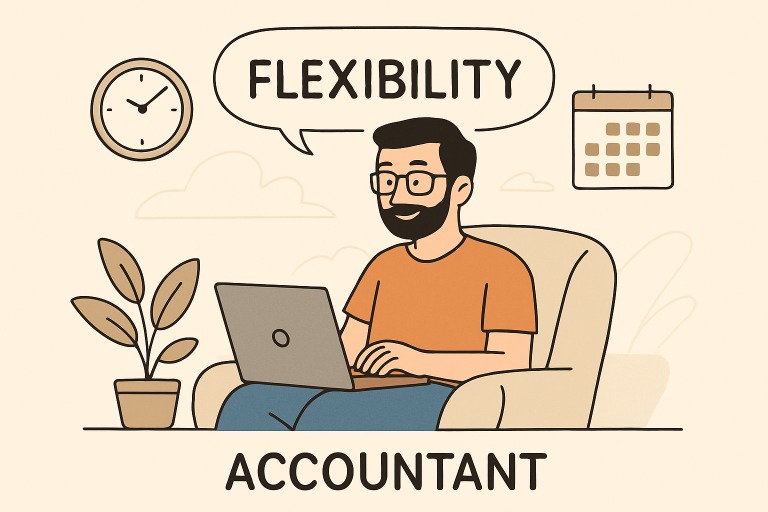The Shift to Online Learning in Accounting
The accounting field has undergone a profound transformation with the rapid growth of online Continuing Professional Education (CPE) courses. This digital evolution offers accountants the opportunity to refresh their skills and expertise on their own terms, tailoring education to their busy careers. Today, professionals can instantly learn more about upcoming courses that fit their schedule, rather than being tied to in-person events or seminars that require time away from the office. Online CPE is gaining popularity due to its flexibility, adaptability to industry standards, and expert-led instruction, which enhances the learning experience for accountants by balancing work deadlines and personal responsibilities.
Flexibility and Convenience
One of the most significant advantages of online CPE courses is the flexibility to learn at your own pace, on your own schedule. For accountants managing multiple clients, deadlines, or personal commitments, this flexibility is transformative. Course materials, presentations, and assessments are typically available 24/7, allowing users to engage with content at their convenience. This shift away from traditional scheduling removes many barriers typically associated with in-person seminars, such as geographic location or travel time, helping make continuing education more inclusive and attainable for a broader range of professionals.
Diverse Course Offerings
Online CPE providers now offer an expansive catalog of courses that go well beyond the basics. From cutting-edge tax updates and audit standards to specialized topics like cybersecurity, data analytics, and blockchain for accountants, the range of content is broader than ever before. This empowers professionals to tailor their educational experiences to specific interests or areas that will have the most significant impact on their careers. Having the ability to pick and choose courses that align with current trends allows accountants to quickly respond to industry shifts and provide up-to-date guidance to their clients and employers. Platforms like the Journal of Accountancy often report on how access to such diverse learning options is elevating the industry’s overall educational standards.
Cost-Effectiveness
Cost plays an essential role in the decision to pursue online education. Traditional CPE options often require not only course fees but also additional expenses for travel, accommodation, and meals, which can quickly add up. Online CPE eliminates those costs, making continuing education more affordable and accessible for solo practitioners and firms alike. Subscription-based models, bundle discounts, and even free webinars further lower the barrier for CPAs who are keen to fulfill state licensing requirements without incurring excessive financial strain.
Engaging and Interactive Learning
Modern online CPE programs are designed to be interactive and stimulating. Many include live Q&A sessions, instant feedback quizzes, digital discussion boards, and multimedia presentations to keep learners engaged and motivated. These interactive features encourage deeper learning and improve information retention. Interactive course designs are proving to be particularly effective in professional development. By adapting best practices in e-learning, these programs help ensure that complex accounting principles are broken down into manageable, user-friendly modules that suit a variety of learning styles.
Access to Expert Instructors
Online platforms frequently collaborate with leading industry professionals, educators, and subject matter experts to deliver relevant and practical content. Accountants can learn directly from seasoned practitioners, gaining insights grounded in real-world experience rather than theory alone. This exposure to diverse expertise can lead to innovative approaches to client work and foster a culture of continuous improvement within accounting teams.
Real-Time Updates on Industry Changes
Developments in legislation, tax policy, technology, and best practices continuously shape the accounting sector. Online CPE providers are uniquely positioned to update and release new course content as soon as rules or standards change, ensuring accountants can swiftly acquire the knowledge needed for compliance. Unlike printed materials or in-person events, digital offerings can be updated almost instantly, providing peace of mind that learning is always current.
Networking Opportunities
Many online CPE platforms feature built-in community forums, live chat capabilities, or group projects, creating new pathways for networking and collaboration. Accountants can contribute to discussions, share knowledge, and establish connections with colleagues across industries and geographies. These virtual communities often lead to valuable contacts and can even inspire collaborative projects or career advancement opportunities.
Conclusion
The rise of online CPE courses has fundamentally changed the way accountants approach their professional growth, transforming continuing education into a flexible, accessible, and highly engaging process. With the increasing availability of expert-led instruction, cost-effective options, and real-time updates on industry changes, accountants are better positioned than ever to stay ahead in a rapidly evolving field. By embracing digital learning platforms, the accounting profession as a whole benefits from more knowledgeable, well-connected, and adaptive practitioners prepared to meet the challenges of the future.





Leave a Reply